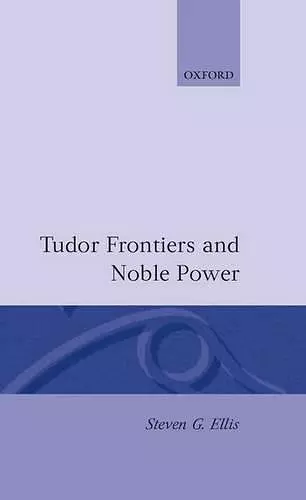Tudor Frontiers and Noble Power
The Making of the British State
Format:Hardback
Publisher:Oxford University Press
Published:13th Jul '95
Currently unavailable, and unfortunately no date known when it will be back

This controversial book offers a novel perspective on Tudor government and British state formation. It argues that traditional studies focusing on lowland England as 'the normal context of government' exaggerate the regime's successes by marginalizing the borderlands. Frontiers were normal in early-modern Europe, however, and central to the problem of state formation. England's peripheries were more extensive than the core and provide the real yardstick by which the effectiveness of government can be measured. Ellis demonstrates their importance by means of a detailed comparative study of two marches - Cumbria and Ireland - and their ruling magnates. He demonstrates the flaws in early Tudor policy, characterized by long periods of neglect, interspersed with sporadic attempts to adapt, at minimal cost, a centralized administrative system geared to lowland England for the government of outlying regions which had very different social structures. Ellis analyses the 1534 crisis in crown-magnate relations, reassesses the resulting policy of centralization and uniformity, and identifies the central role of these developments in establishing a British pattern of state formation.
a very personal scholarly statement ... The author has been well known for a number of years as an incisive and objective historian of Tudor Ireland. It is hard to quarrel with his detailed and painstaking research, or with the cautious and intelligent way in which his conclusions are presented. * History Today *
E. has written yet another highly accomplished monograph: less ambitious in range but more sophisticated in planning and execution of its aims than previous publications by other researchers ... The monograph is well written, closely argued and likely to provoke the kind of healthy debate that promotes further research endeavours rather than demolishing other historians as irredeemable enemies. * Archive for Reformation History *
With this fine study Ellis augments his earlier contributions to the once neglected history of the Tudor borderlands and their impact on political relations between England on one hand and Ireland, Scotland, and Wales on the other. * William B. Robinson, Southeastern Louisiana University (Hammond) Sixteenth Century Journal XXVII/1 (11996) *
well executed and interesting ... a very personal scholarly statement ... It is hard to quarrel with his detailed and painstaking research, or with the cautious and intelligent way in which his conclusions are presented. Professor Ellis establishes with considerable learning that there was an aristocratic marcher culture. * David Loades, History Today, August 1996 *
Ellis has written an important comparative study of the administration of the borderlands from 1485-1540 ... profoundly scholarly, this book should be accessible and interesting even to general readers. * W.B. Robison III, Southeastern Louisiana University, Choice, February 1996, Vol.33 No. 6 *
an engaging and scholarly contribution to our knowledge of two important frontiers ... Ellis's scholarship is meticulous ... his ongoing move away from court-based or indeed Anglocentric history is a good example for British historians to follow. * Maureen M. Meikle, University of Sutherland, History 83/269 *
ISBN: 9780198201335
Dimensions: 225mm x 141mm x 24mm
Weight: 528g
330 pages